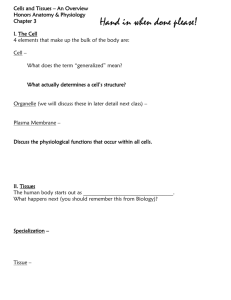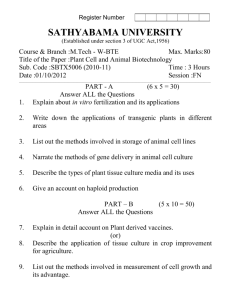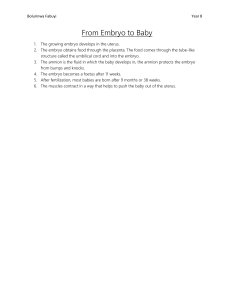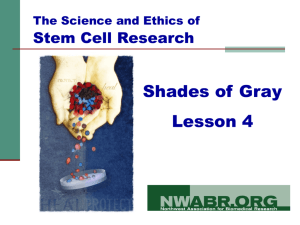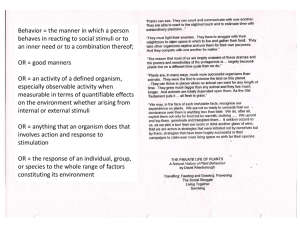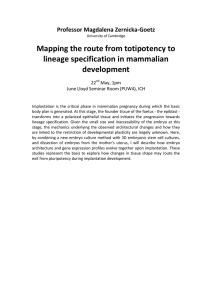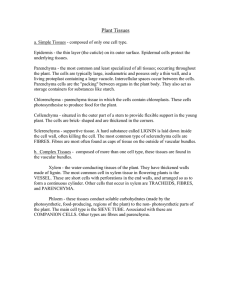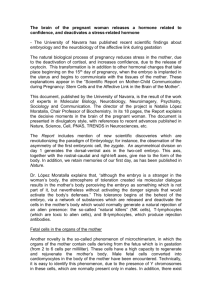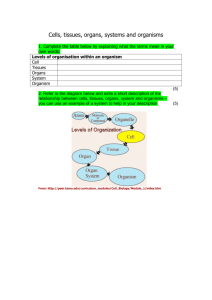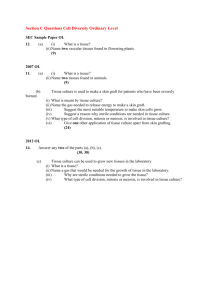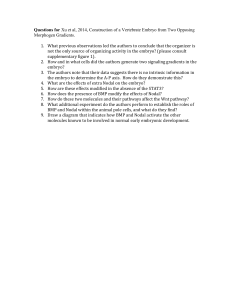Dynamics of disordered biological structures: mechanical networks
advertisement
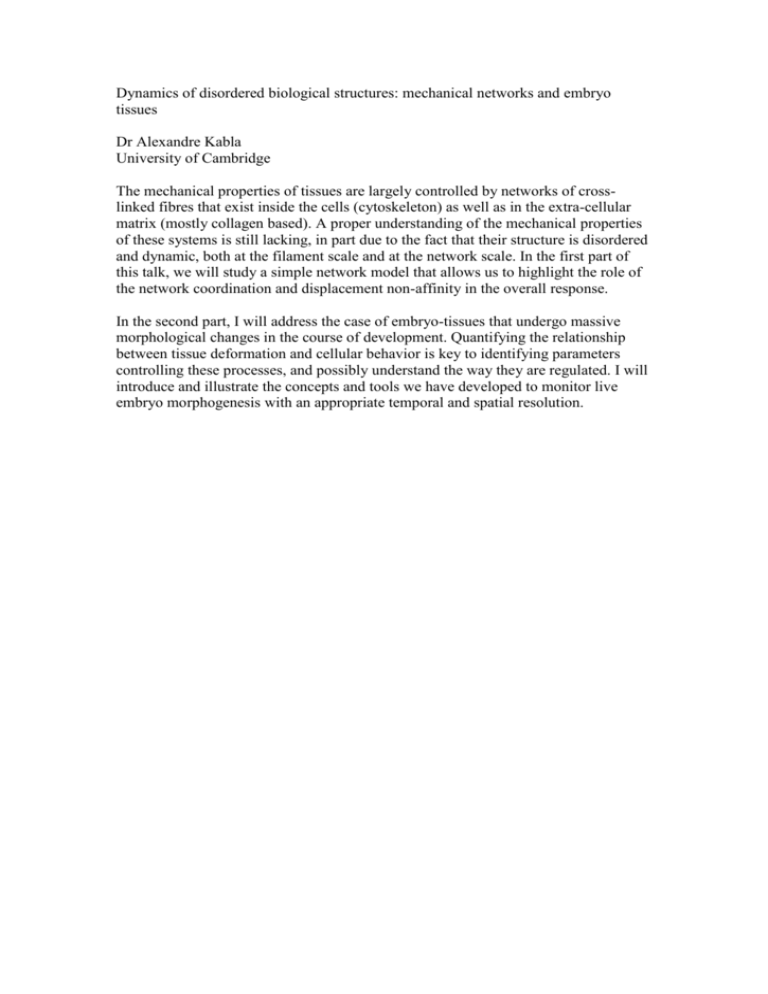
Dynamics of disordered biological structures: mechanical networks and embryo tissues Dr Alexandre Kabla University of Cambridge The mechanical properties of tissues are largely controlled by networks of crosslinked fibres that exist inside the cells (cytoskeleton) as well as in the extra-cellular matrix (mostly collagen based). A proper understanding of the mechanical properties of these systems is still lacking, in part due to the fact that their structure is disordered and dynamic, both at the filament scale and at the network scale. In the first part of this talk, we will study a simple network model that allows us to highlight the role of the network coordination and displacement non-affinity in the overall response. In the second part, I will address the case of embryo-tissues that undergo massive morphological changes in the course of development. Quantifying the relationship between tissue deformation and cellular behavior is key to identifying parameters controlling these processes, and possibly understand the way they are regulated. I will introduce and illustrate the concepts and tools we have developed to monitor live embryo morphogenesis with an appropriate temporal and spatial resolution.
